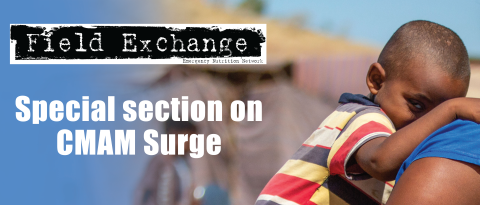Relapse and regression to severe wasting in children under 5 years: A theoretical framework
Research snapshot1
Recently published reviews on relapse to severe wasting and long-term treatment outcomes suggest that levels of severe wasting after treatment are considerable. Standardised measurement is, however, lacking. The Council of Research & Technical Advice for Acute Malnutrition (CORTASAM) recommends the use of the following definitions: relapse (wasting within six months after exiting treatment as per recommended discharge criteria), regression (wasting within six months after exiting treatment before reaching recommended discharge criteria), reoccurrence (wasting after six months of exit from treatment as per recommended discharge criteria) and ongoing episode (severe wasting cases that exit treatment while still severely wasted).
A theoretical framework of post-treatment relapse and regression to severe wasting is presented in this paper to guide discussions, risk factor analyses and the development and evaluation of interventions. The framework highlights additional factors that may impact the risk of relapse and regression in addition to the impact of contextual factors associated with incidence and reoccurrence of severe wasting more generally. These potential risk factors include the nutrition and health status of the child – at admission, during treatment and at exit from treatment, treatment interventions, platforms and approaches or the type of exit from treatment (e.g., before reaching the recommended criteria), poorer nutritional and immunological status at exit from treatment (immune recovery in wasted children may take longer than nutritional recovery so children may not be immunologically recovered when exiting treatment even after meeting recommended criteria for ‘recovery’) and, finally, interventions following exit from treatment (e.g., nutritional support and care group interventions at the community or household level, broader community support or access to social protection).
The evidence-base for many factors hypothesised in this framework is weak. Robust trials are needed to identify efficacious interventions to reduce relapse and regression after exit from treatment. This framework can be a starting point to stimulate and guide research to improve understanding of severe wasting after exit from treatment, how to identify children most at risk of relapsing and regressing and thus wasting-related mortality and morbidity and how to prevent wasting after treatment exit. For programmes, continuity of care across treatment programmes and after discharge should be a priority.
Subscribe freely to receive Field Exchange content to your mailbox or front door.
Endnotes
1 Schaefer, R., Mayberry, A., Briend, A., Manary, M., Walker, P., Stobaugh, H., Hanson, K., McGrath, M., & Black, R. (2020). Relapse and regression to severe wasting in children under 5 years: A theoretical framework. Maternal & Child Nutrition, e13107. doi:https://doi.org/10.1111/mcn.13107


